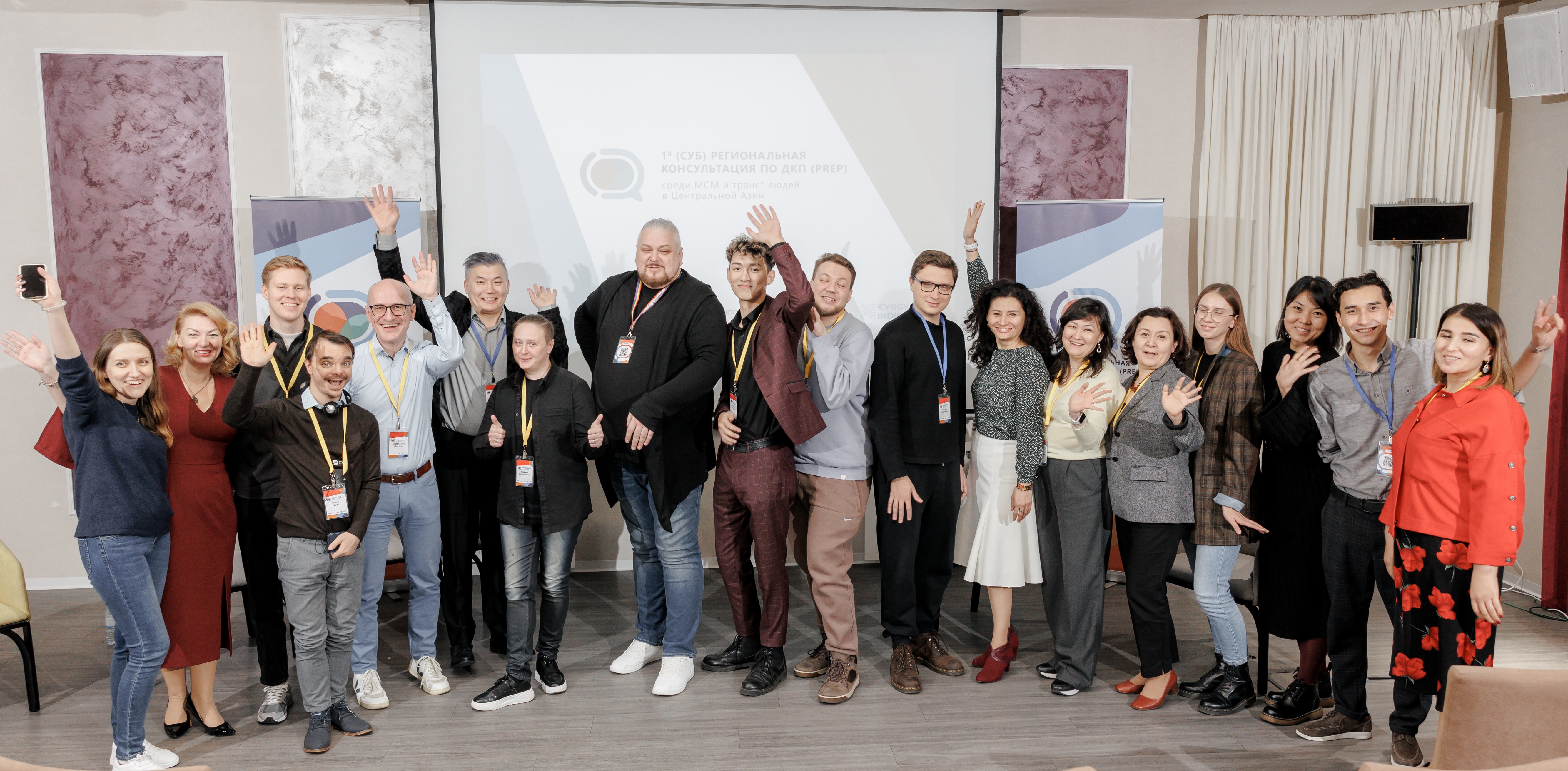The Republican AIDS Center of the Kyrgyz Republic published the results of a formative assessment conducted among transgender people. ECOM actively supported and was involved in the study as part of the Trans* Map in EECA project.
The formative assessment was conducted to select a method of bio-behavioral research and estimate the number of transgender people in the country. The study covered 23 transgender people, and the following data was collected: socio-demographic data, the level of involvement in sex work, the use of PAS (psychoactive substances), data on the advisability of conducting bio-behavioral research. The formative research of trans* people in Kyrgyzstan is the first of its kind in Central Asia.
“Recognition of transgender people as a separate key group is an important step towards reducing the spread of HIV among trans* people, who, according to international data, are at risk for HIV. This will allow transgender people — the citizens and guests of the country — to receive legitimate, perhaps even trans* specific preventive support from the country, to be adherent to treatment; moreover, their data will not be mixed with the MSM group, creating a database. This also sets a good example for the entire EECA region, bringing Kyrgyzstan closer to global practices with proven effectiveness in reducing the spread of new HIV cases,” says Daniyar Orsekov, Advocacy Coordinator at ECOM, who was directly involved in conducting the assessment.
An Integrated Bio-Behavioral Surveillance (IBBS) study among key populations, such as trans* people, is conducted to obtain representative data on the level of HIV infection in the group, risk behaviors and available prevention services. This study will be an important factor in resource allocation and identification of priorities in HIV programs in Kyrgyzstan. The more accurate the quantitative assessment of trans* people in a country, the more people will be able to access HIV prevention and treatment services.
It is very important to carry out IBBS among trans* people; unfortunately, in the region of Eastern Europe and Central Asia, such studies have been carried out only in Ukraine (2020) and Armenia (2018; 2022).
ECOM is glad that the Republican AIDS Center has collected important data through a formative study, thus starting preparations for a bio-behavioral study.
The report is now available for viewing and contains information about the results of the assessment, recommended sampling method, research centers, privacy and recommended recruiting criteria.
Information on the spread of HIV in Kyrgyzstan
The HIV epidemic in the Kyrgyz Republic is at the second concentrated stage of development, and the spread occurs mainly among key population groups. UNAIDS estimates: 25,000 PWID (people who inject drugs), 7,100 sex workers and 16,900 MSM (men who have sex with men). There is no estimated number of transgender people in the country yet. The prevalence of HIV is 142.9 cases per 100,000 population. The report contains an overview of transgender people, so, taking into account the percentage of transgender people in the adult population of reproductive age, as stated by UNAIDS, the authors of the report make an assumption that about 3,449 transgender people may live in Kyrgyzstan.
The report confirms that the prevalence of HIV and STIs among trans* people in Kyrgyzstan is unknown. However, the fact that trans* people are mentioned in several documents at the national level — identified as a separate key group in the Program of the Government on Countering HIV Infection for 2017–2021, as well as in the application that the country submits to the Global Fund for HIV events — indicates that trans* people are in the focus of attention and their interests will be taken into account by the state when making decisions.
Transgender people are included in the key groups in the service standards, which are an additional package of documents to the law on government social order. Such recognition of transgender people as a key group and their inclusion in relevant documents allows them to be in focus (without being blurred in the MSM group) and receive the services that can be specifically tailored for better results. This also makes it possible to create strategic information separately for the transgender population for segregated interpretation and for use in planning and decision-making processes.





Комментарии
Пока никто не оставил комментарий